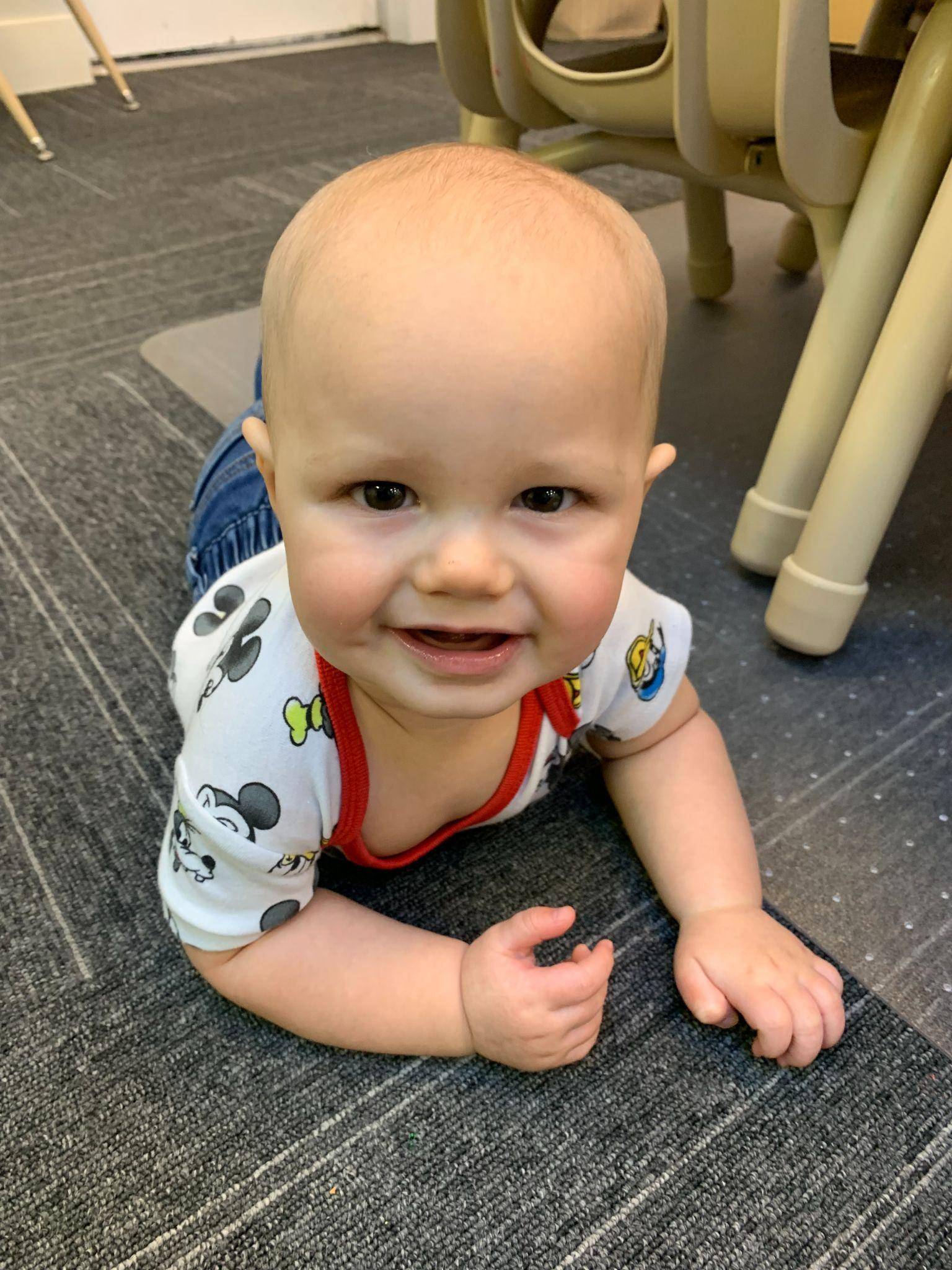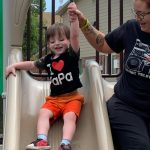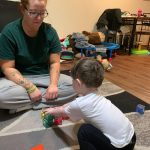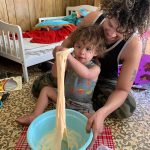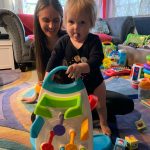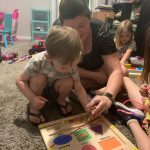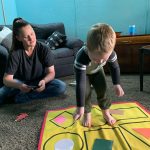Stefanie Moore and Autumn Sanderson, family educators at Rural Utah Child Development (RUCD) Head Start, recently shed some light on everything the agency has to offer, including the expansive ages of children that can take advantage of the Early Head Start program and the home-based visits.
Moore stated that many people think RUCD Head Start only serves preschool-age children. However, the organization added services for prenatal moms and children from zero to three in 1999. Early Head Start offers families a center-based or home-based option.
This is a program that believes that parents are the first and lifelong educators and want to give them the tools needed to make their child successful, starting with proper prenatal care.
This program can be provided in a home-based environment, where Family Educators visit the home and work with parents one-on-one. Moore stated that this is a great service, as not all parents have transportation, and it is also able to be very personalized to the specific child.
Weekly visits are 90 minutes, though it can exceed that time if needed. Group connections are provided each month in order for the children that are in the home-based program to still get socialization with other children. The connections also provide opportunities for parents to get to know others in the community.
Activities are brought into the home to work with the parents and the child together as one. The Family Educators do not come in and take over, they work with the families together as a whole in order for the parents to learn developmental milestones, as well as what activities are age-appropriate for a child. Parents also learn that anything can be made educational, even a simple walk in the park.
Family Educators will work around schedules, as there are a lot of working families. Head Start works with the Southeast Utah Health Department’s Parents as Teachers program, as well as early intervention. Children can be dual-enrolled in these various programs and dual services can take place on the same date if that works best for parents. During the visits, the Family Educator will sit on the floor with the parent and child, engage with the child and talk with the parents about what will happen throughout the visit and what skills can be gained through each activity, before planning for the next visit.
Early Head Start also features a center-based program that is for ages zero to three, where the children come into the center Monday through Friday, with Monday’s being half days. Transportation is not provided for the center-based program.
There is a Head Start classroom for children aged three to five. The classroom runs through the school year and summer is the off season. The focus is on more than just education, but on health, mental health, emotional wellbeing, managing emotions and effective communication as well.
RUCD Head Start is an income-based program. Those that have SNAP benefits will automatically qualify, as well as children that are in Foster Care or experiencing homelessness. Everyone is encouraged to apply, however, children from lower-income households receive priority for services.
There is no cost to the parents for the program and the children that are in the classroom are provided with a breakfast and lunch. Children do not have to be potty trained to utilize Head Start, and those that care for the children are happy to help in the potty training process. Moore and Sanderson stressed that the program is not just for the child, but for the families.
Sanderson touched on one family in the program that had the father say that he did not realize how valuable it was to sit and spend time with the child, but quickly saw them progress in potty training, not using a bottle any longer, and sleeping in a toddler bed throughout the night.
“It’s more than just 123’s and ABC’s,” Sanderson stated.
- Photos Courtesy of RUCD Head Start

